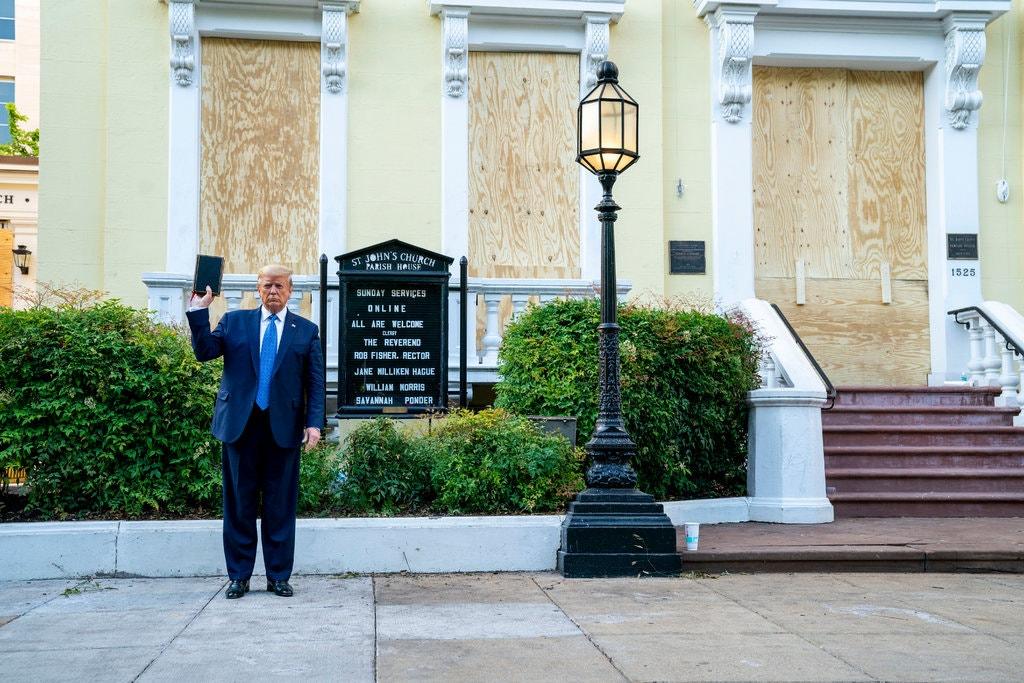
I’m not much involved in the culture war because I think it’s a misuse of time and energy, especially on the part of Christians and churches, to be vying for political power.
The Evangelical Right was the first to fall to this temptation in recent American history, but the Progressive Left is quickly following suit. It’s like we’ll do and say almost anything to bolster our advantage against the other side.
Hear me out on this matter, please. It’s not that I think certain issues aren’t important when it comes to our culture, and it’s not that I think we shouldn’t stand for what is right, especially when it comes to our solidarity with the most vulnerable members of society. The church has a prophetic calling to speak “truth to power” in every sphere of life.
It’s the way we go about it that matters.
You’re probably familiar with the story of Jesus going to the wilderness to be tempted by the devil (Luke 4:1-14). The good book says that after he fasted and prayed for forty days, Satan came to offer him some help.
“Use your power to feed yourself,” he suggested (I’m paraphrasing here). “Throw yourself down from the pinnacle of the temple. Just show me a little obeisance and all the kingdoms of the world will be yours. Easy peasy.”
Of course, Jesus refused his offer on every count and subsequently returned to town “in the power of the Spirit.” I think we tend to overlook the significance of this exchange, especially that last little bit. Jesus returned with power, but it wasn’t the kind of power the devil offered him. It wasn’t worldly power Christ sought but spiritual power, the difference between “power over” and “power with.”
Essentially, this story symbolizes the human temptation to take power over our fellow creatures — in effect, bypassing the suffering of the cross — to gain what might otherwise seem to be legitimate ends. Jesus denied himself this temptation and chose a better way. Christians are called to imitate Christ in this way, but the culture war demonstrates our overwhelming failure to do so.
Forgive me if I’m wrong here — and I’m well aware of how much my privilege may be playing into my viewpoint — but I think both the Evangelical Right and the Progressive Left in America have fallen for the devil’s temptation. In a well-intended but misguided effort to advance their righteous cause(s), they have left the way of Christ to jockey for political power instead.
Without going deeply into it, I should also point out that political power is always “power over.” It is the power of the State which is maintained by either the threat or force of violence. Granted, the violence of the American state (at least upon its own citizens) may seem benign compared to other “authoritarian” countries, but it is no less real. If you don’t believe me, just stop paying your taxes for a while. You’ll find out how “free” you really are.
It is precisely at this point — the way we understand and relate to the State — where I believe modern evangelical and progressive Christians alike stand to learn from the early churches.
Until the time of Constantine, there seems to have been a fairly unanimous if not universal view among Christians that taking the way of Christ meant refusing participation in the “ways of the world,” which amounted to not being a direct participant in the affairs of the State. In the words of Eberhard Arnold,
The [early] Christians abhorred and attacked [any] mixture of the religious and the patriotic. They detested any State religion that forced back God’s rule; they loathed all religiosity influenced by the politics of the moment, and fought against any veneration of the existing power structure. This included any political system with a religious emphasis. These were to be regarded as the inheritance of Babylon, the works of sin and demonism. They were nothing short of the devil’s state and the service of Satan. (The Early Christians in Their Own Words)
Theoretically, this conviction would have held true whether or not the state was considered “Christian,” as it often is in modern-day America. In fact, most early disciples would have scoffed at the notion of a “Christian” nation, because, again — every nation is founded on either the threat or force of violence, and this type of power (“power-over”) is essentially anti-Christ. It is the way of the world.
I realize that I’m hinting at some pretty big implications here, but I don’t see how the Christian faith proposes anything less. At the very least, it suggests that no matter which side wins the Christian culture war, we’ve already lost the battle for a new world just by participating in it.
I’ll stop there. The prophets and patriarchs of old dreamed of a celestial city “not built with human hands, whose builder and maker is God” (Hebrews 11:10). Part of what I think this means is that the new Earth, including its people and its social systems, will not be built on the foundation of human violence as our current systems are. We need a better way for a new humanity. The way of Christ.











